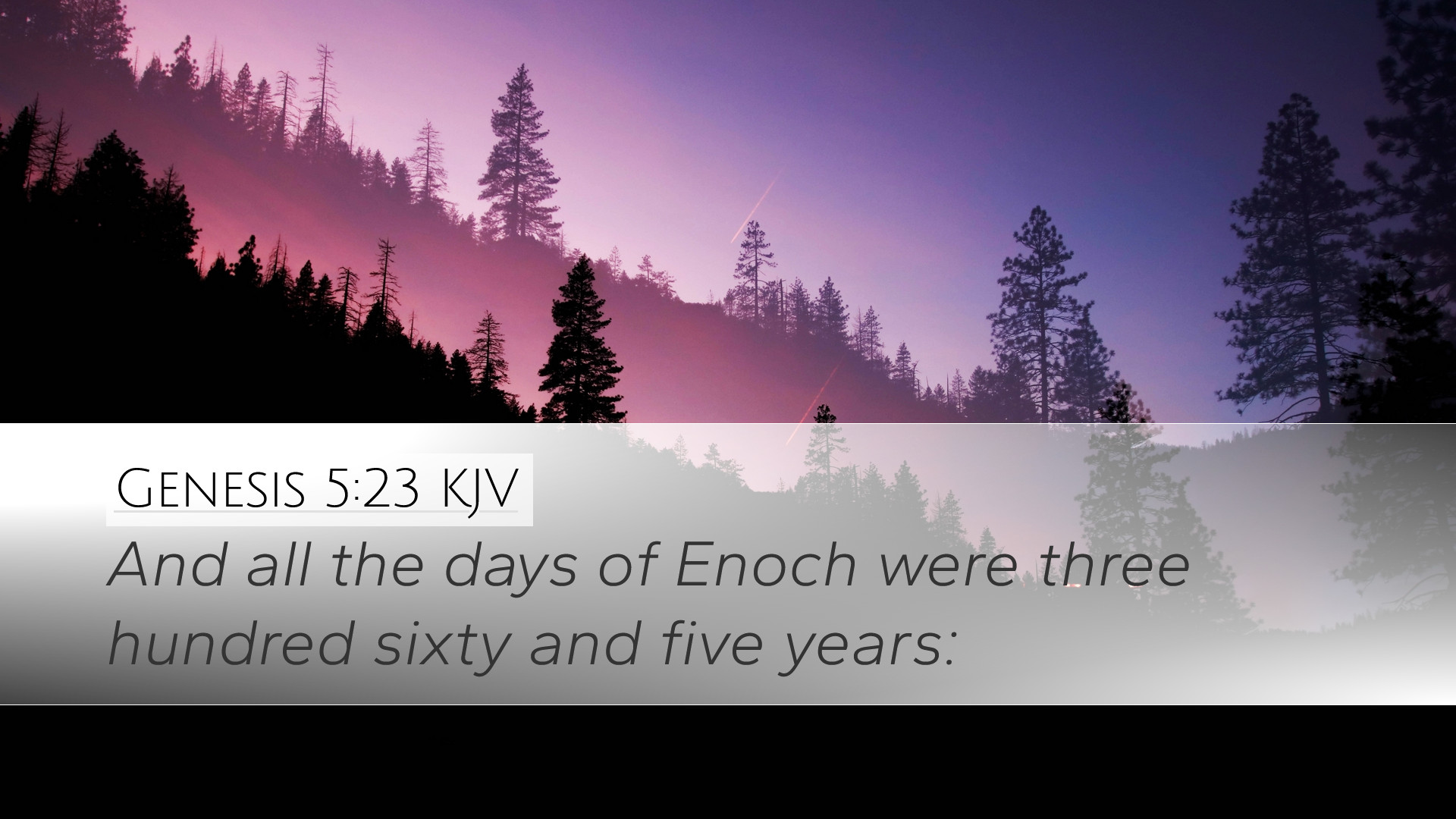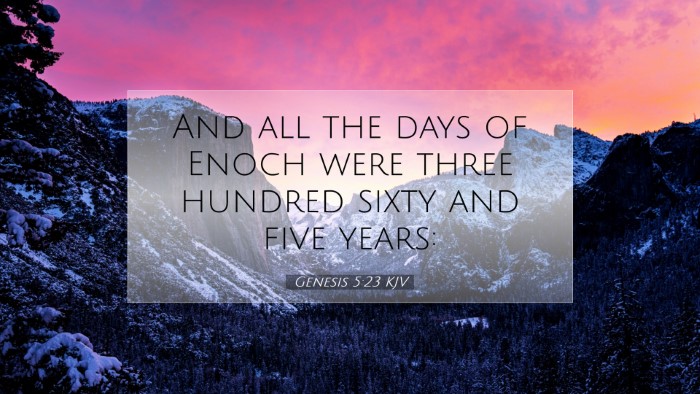Commentary on Genesis 5:23
Verse (Genesis 5:23): "And all the days of Enoch were three hundred sixty and five years."
Introduction
Genesis 5:23 presents a brief yet profound account of Enoch, one of the antediluvian patriarchs, emphasizing the extraordinary nature of his life in a genealogical context. This commentary draws on insights from several public domain theologians, providing a comprehensive view of the theological and moral implications of Enoch's life.
Enoch's Lifespan
The verse succinctly states that Enoch lived for three hundred sixty-five years. This number is significant in its own right, suggesting a clear contrast to the longer lifespans recorded for other patriarchs in the genealogical list of Genesis 5.
- Matthew Henry notes that the "shortness" of Enoch's life compared to others may serve to underline the special significance of his godly walk.
- Albert Barnes views the number as symbolizing a complete cycle of life, suggesting that Enoch fulfilled his earthly destiny in the span of 365 years.
- Adam Clarke emphasizes that the precision of the number also reflects a divinely appointed rhythm in his life, hinting at the cycles of the calendar and God’s governance over time.
The Life of Enoch
Although this verse provides minimal detail, it fits within the larger narrative of Enoch's life as presented in Genesis 5:21-24. Enoch's life is notable not only for its unusual brevity among the patriarchs but also for his unique relationship with God, which culminated in his being "taken" by God.
- Matthew Henry elaborates that Enoch walked with God 'in a manner pleasing to Him,' reflecting a life of righteousness and communion with the Divine.
- Albert Barnes highlights Enoch's character, noting how his life serves as an example of faithfulness and dedication to God amid a corrupt and declining world.
- Adam Clarke remarks on the implications of “walking with God,” indicating a lifestyle characterized by faith, obedience, and the pursuit of holiness.
The Significance of "Walking with God"
The phrase "walked with God" is crucial, as it conveys a deep covenantal relationship characterized by trust, obedience, and intimacy.
- Matthew Henry points out that to "walk with God" entails not just occasional piety but a continuous lifestyle of devotion and moral integrity.
- Albert Barnes notes that this recognition of Enoch walking with God sets a benchmark for the faithful life, where true devotion goes beyond mere observance to a transformative relationship.
- Adam Clarke underscores the rarity of such a relationship, suggesting that Enoch's faithfulness set him apart in a time when the world was marked by increasing wickedness.
Theological Implications
The life and experiences of Enoch also signal several theological themes relevant to doctrine and life:
- Faith and Righteousness: Enoch's life exemplifies the principle that faith is demonstrated through righteous living, a theme echoed in Hebrews 11:5-6, where faith is key to pleasing God.
- Divine Favor: Enoch's unique experience of being "taken" implies a divine approval of his life, suggesting that God rewards those who diligently seek Him (Hebrews 11:6).
- Eschatological Significance: Enoch serves as a precursor to the broader Biblical narrative concerning the resurrection and afterlife, presenting hope to those who walk in faith.
Conclusion
Genesis 5:23, while a simple genealogical detail, encapsulates vital lessons for believers. Enoch’s life teaches us the importance of maintaining a close relationship with God, illustrating that it is possible to live a life of holiness and faithfulness in a world often contrary to such values.
His example provides both a challenge and an encouragement to pursue a deeper communion with God, understanding that a life committed to divine fellowship bears fruit not only in this world but in the one to come.


